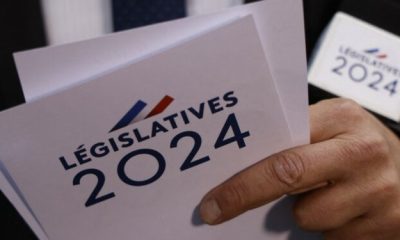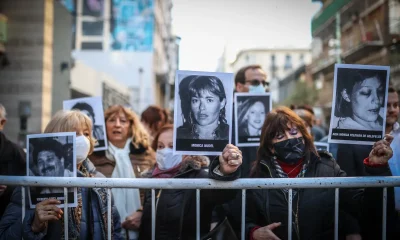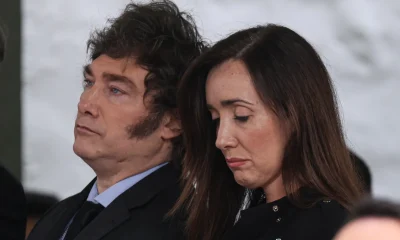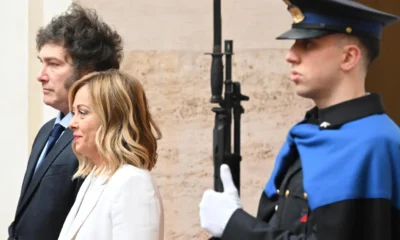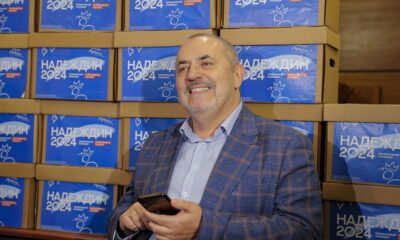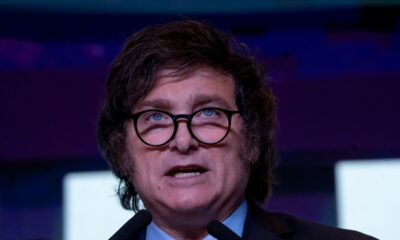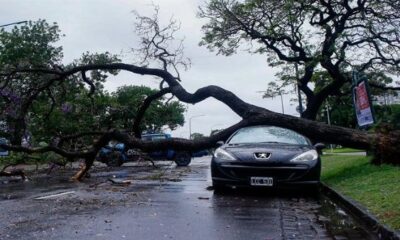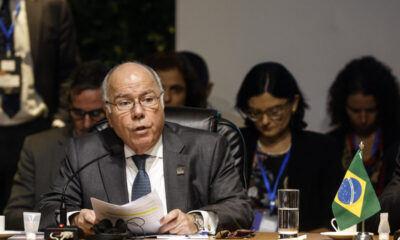International
Argentina: candidates prepare for internal political party elections
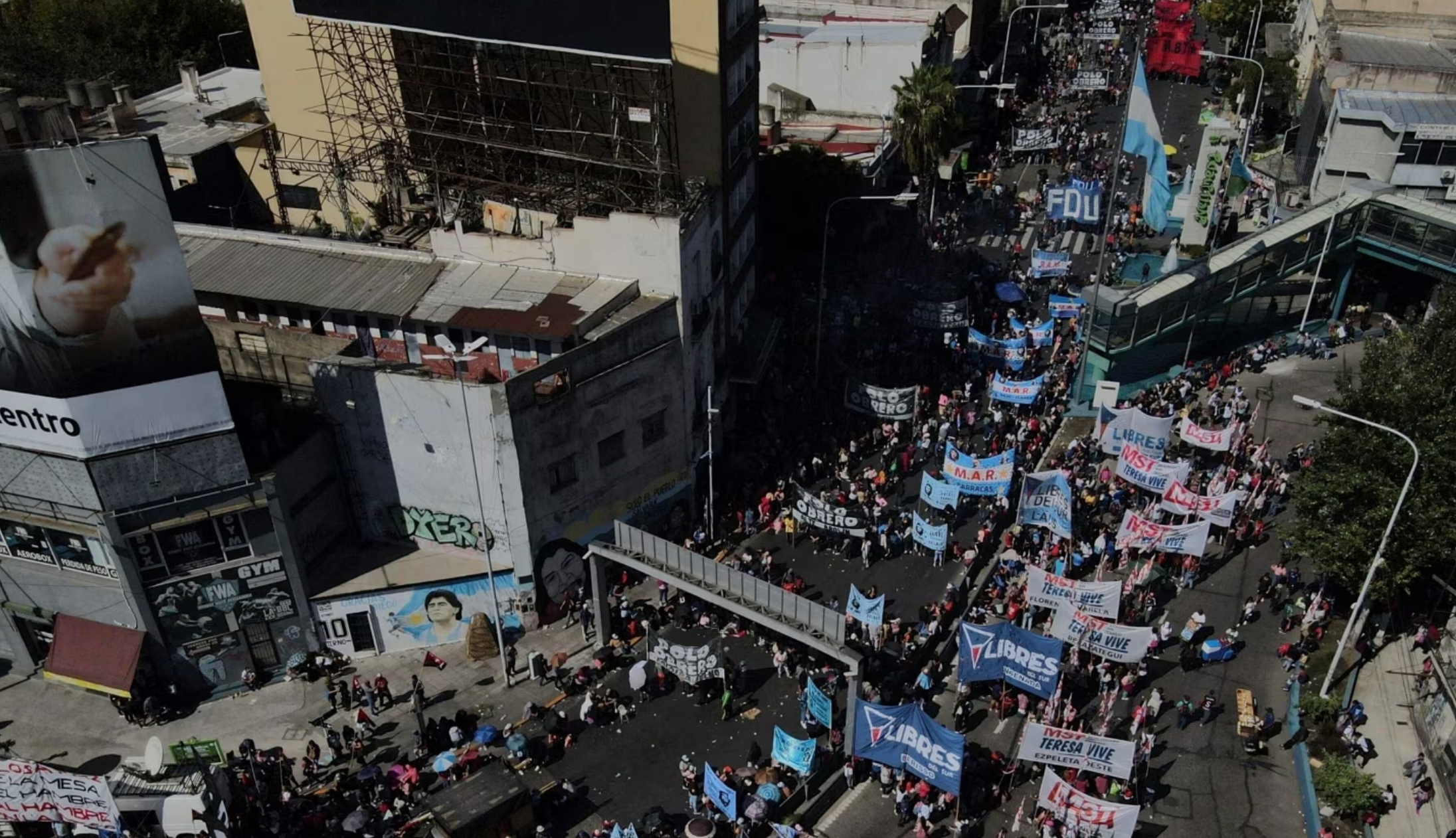
May 29 |
On June 4, the internal elections of the political parties in Argentina will be held, which will define the formulas that will compete in the August primaries and in the general elections in October to elect the new president.
In the midst of a serious economic crisis and a social unrest that could lead the government to suffer a heavy defeat, according to opinion polls, the candidates are toughening their speeches and intensifying their campaigns.
The liberals, for the first time in history, capture the young vote and the so-called ‘angry vote’ of the society, they lead the polls, with their referent the economist Javier Milei, with an incendiary message.
“We are going to bet on a system that is going to take the machine away from the criminals of the politicians,” said Milei. “The main beneficiaries of the little machine that generates inflation are the crooks of the political caste, because it is the one that has financed the political caste and during the first two years of President Alberto Fernández they have looted (stolen) 11 points of the GDP from us.”
Kirchnerism has already differentiated itself from the current government and is presenting a pro-government candidate, the current Minister of the Interior, Wado de Pedro, who is seeking to gain followers for the Frente de Todos party.
“As Cristina Fernández de Kirchner rightly said, it is necessary to take the marshal’s baton, because there is a generation that is good for Argentina to refresh its leadership. New generations appear in businessmen, in the media, in the trade unions”, argues the candidate.
From the opposition, there is a possibility of recovering governorships, mayorships, legislative seats and even the presidency, with a tough message.
The former Minister of Security, Patricia Bullrich, from the right-wing Republican Proposal (Pro), says that “to adjust means to shrink a State that grew 100% in the last 20 years, and that took away the wealth of all Argentines, to create a bureaucracy, bigger and bigger, that went from 23% of the GDP to 42% and that left you absolutely nothing”.
“It did not give you better health, better housing, better education… so, I do not enter into the language of Kirchnerism”, he added.
The current mayor of Buenos Aires, Horacio Rodríguez Larreta, of Juntos por el Cambio, is the most moderate candidate with more experience in administration, and seeks to give guarantees of governability.
“Here the important thing is a development plan. We are going to make Argentina produce again, we are going to open new markets in the world because it needs our food, our oil, gas and we are going to modernize the labor system. Today it is a catastrophe and I am convinced that Argentina will stop suffering”, he recently promised.
The August primary elections will be decisive to measure the political pulse and to see who has real chances of winning.
International
Bolivia Orders Three Investigations Into Deadly Military Plane Crash
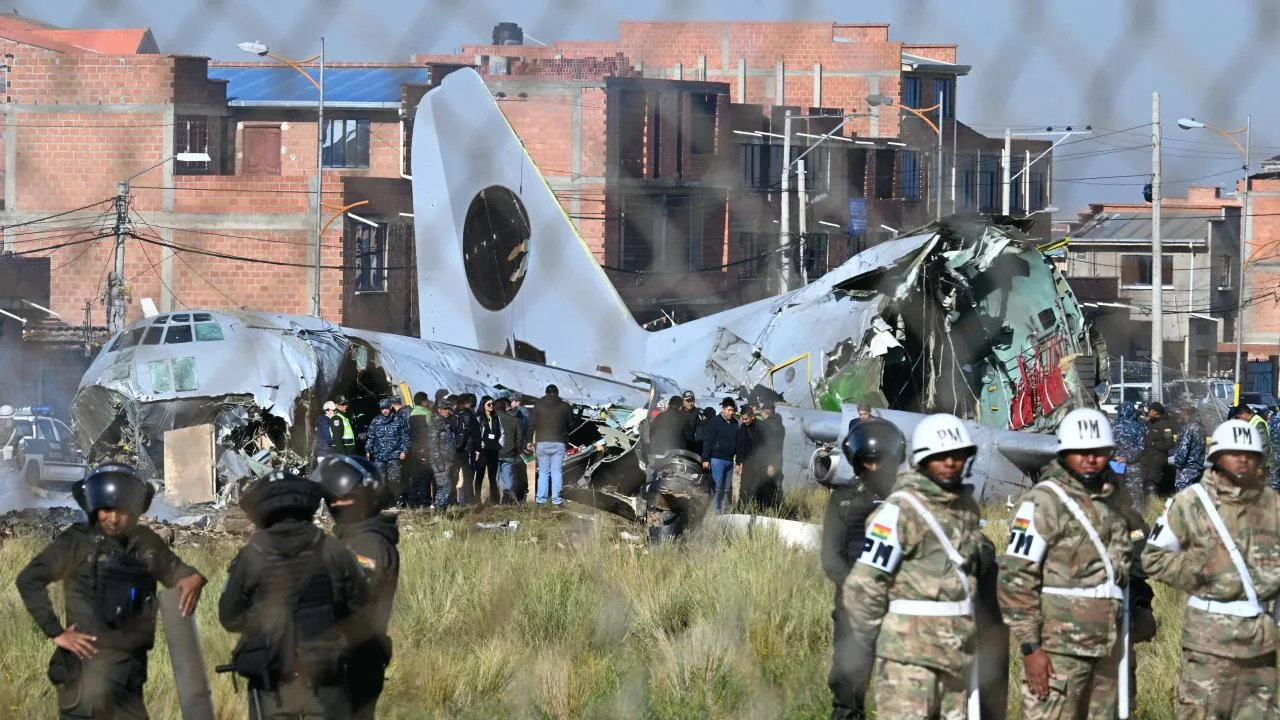
Bolivia’s Defense Minister Marcelo Salinas announced Monday that three separate investigations will be conducted into Friday’s crash of a military cargo aircraft at El Alto International Airport, near La Paz, which left at least 22 people dead.
The Hercules aircraft, operated by the Fuerza Aérea Boliviana (FAB), was transporting cash intended for the Central Bank of Bolivia when it overshot the runway after landing from the city of Santa Cruz. The plane reportedly traveled nearly one kilometer beyond the airport perimeter.
The incident sparked chaotic scenes, with individuals attempting to collect scattered banknotes. Authorities detained 51 people in the aftermath, and the government declared three days of national mourning.
Multiple Investigations Underway
The first inquiry is being led by a military board from the Bolivian Air Force, which has already taken custody of the aircraft’s black box for analysis.
Minister Salinas said two additional investigations will follow — one conducted by the insurance company and another by the aircraft’s manufacturer.
“At least two more investigations will come, that of the insurance company and that of the aircraft manufacturer,” Salinas said during a press conference in Santa Cruz.
He cautioned that the investigative process could take between three and six months, noting that the black box cannot be opened in Bolivia due to the lack of specialized laboratories for analysis.
Awaiting Official Findings
Salinas stressed that the FAB investigative board is the highest authority in the case and urged the public to wait for its conclusions to avoid speculation about the causes of the crash.
He also confirmed that the government has contacted the families of the 22 victims and the 37 injured, as well as the owners of 15 damaged vehicles, to coordinate procedures with the insurer and cover the corresponding expenses.
International
Mexico Calls for Immediate Probe After National Dies in ICE Custody
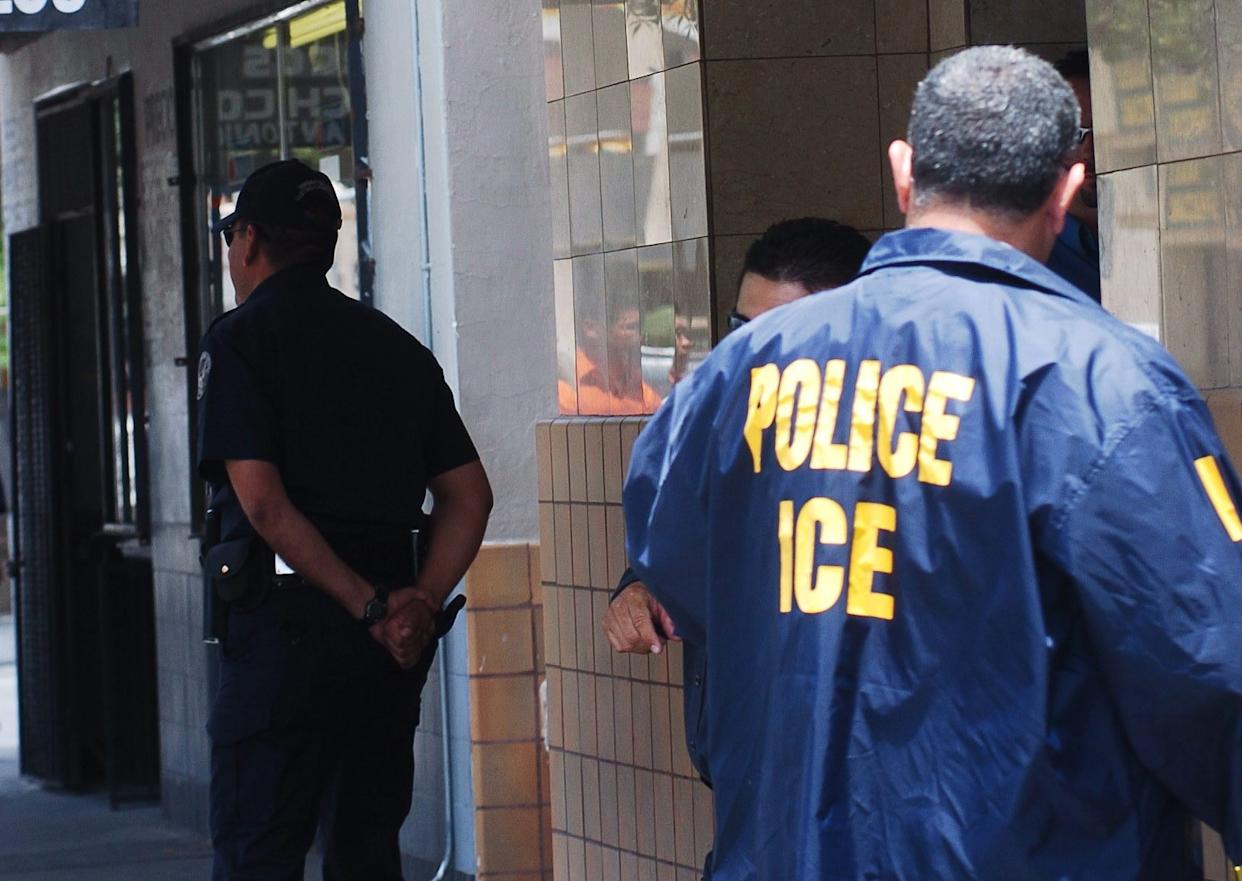
Mexico’s Secretaría de Relaciones Exteriores (SRE) on Monday called on U.S. authorities to conduct an “immediate and thorough” investigation into the death of a Mexican national while in custody of U.S. Immigration and Customs Enforcement (ICE) at a processing facility in California.
In a statement, the Mexican government described the death as “regrettable” and urged U.S. officials to clarify the circumstances surrounding the case in order to “determine responsibilities and ensure that such events do not happen again.”
Death at Adelanto Processing Center
According to available information, the Mexican citizen died at the Adelanto Processing Center in California while under ICE custody. Authorities have not yet released the individual’s identity or the cause of death.
Following the incident, Mexico’s Foreign Ministry formally requested “detailed information” from U.S. authorities, including the detainee’s medical records and custody reports.
Consular Assistance Activated
The Mexican Consulate in San Bernardino, California, has activated consular assistance protocols to provide ongoing support to the deceased’s family. Officials have contacted relatives to express condolences and offer legal guidance, as well as assistance with the necessary procedures to repatriate the remains.
“The handling of situations like this and the establishment of mechanisms to resolve them are priorities for the Government of Mexico,” the Foreign Ministry said, adding that it will formally request an investigation into any systemic conditions that may have contributed to such incidents.
Local Mexican media reported that seven Mexican nationals died while in ICE detention last year — the highest number recorded since the agency was created.
International
Anti-ICE Billboard Campaign Targets Immigration Spending in 31 U.S. Cities

More than 200 billboards criticizing U.S. Immigration and Customs Enforcement (ICE) began appearing Monday in 31 cities across the United States, including Miami, as part of a campaign highlighting the high cost of immigration enforcement operations for taxpayers.
The initiative, titled “ICE Costs Us,” was launched by the civil rights organization Mijente and will run for four weeks.
Criticism of Spending and Enforcement Tactics
The billboards feature images of ICE agents during arrests or carrying military-style weapons. According to the organization, spending on military-grade equipment for the agency has increased by 600 percent in recent years.
Several signs display messages such as:
“Your taxes are being wasted” and “ICE’s cruelty costs you $28 billion,” referring to the agency’s annual budget.
In a statement, Marisa Franco, co-founder of the Mijente Support Committee, said:
“For too long, our government has prioritized building cages and investing billions in an immigration enforcement apparatus that has left families torn apart and communities terrified.”
She added that “Millions of Americans are living paycheck to paycheck, yet this violent agency continues operating with a blank check. These decisions do not make us safer nor improve our economic security. Our billboards highlight these choices and demand a different path.”
Budget Debate and Medicaid Comparison
The campaign also draws a comparison between ICE’s funding and the estimated 17 million people who could lose health coverage under Medicaid due to federal budget cuts under President Donald Trump.
Other billboard messages seen in various cities include:
“They get billions to beat us; we get layoffs and rising rents” and “Funding ICE is a fast track to fascism.”
Organizers say the goal is to spark public debate about the allocation of federal funds for immigration enforcement and the broader economic and social impact of such policies on communities nationwide.
-

 International4 days ago
International4 days agoCocaine Production Surges 34% in 2023 as Market Expands into Africa and Asia
-

 International3 days ago
International3 days agoTrump Floats “Friendly Takeover” of Cuba Amid Rising Tensions
-

 Sin categoría2 days ago
Sin categoría2 days agoTrump: ‘We Think It’s True’ Amid Claims Iran’s Supreme Leader Was Killed
-

 International2 days ago
International2 days agoSecurity Council to Hold Emergency Meeting on Middle East Crisis
-

 International1 day ago
International1 day agoIran Reports 201 Dead, 747 Injured After U.S. and Israeli Strikes
-

 International4 days ago
International4 days agoFederal Judge Blocks Trump Policy Allowing Deportations to Third Countries
-

 International3 days ago
International3 days agoArgentina’s Senate Reviews Milei-Backed Labor Overhaul
-

 International1 day ago
International1 day agoPope Leo XIV Urges End to ‘Spiral of Violence’ in Middle East
-

 International4 days ago
International4 days agoClinton Accuses Republican Committee of Using Epstein Case to Shield Trump
-

 International2 hours ago
International2 hours agoAnti-ICE Billboard Campaign Targets Immigration Spending in 31 U.S. Cities
-

 International2 hours ago
International2 hours agoBrazil’s Supreme Court Rejects Bolsonaro’s Bid for House Arrest
-

 International2 hours ago
International2 hours agoTrump Warns of ‘Major Wave’ of Attacks as Iran Conflict Escalates
-

 International2 hours ago
International2 hours agoMexico Calls for Immediate Probe After National Dies in ICE Custody
-

 Central America2 hours ago
Central America2 hours agoPanama Canal Monitoring Trade as Middle East Conflict Disrupts Shipping
-

 International2 hours ago
International2 hours agoBolivia Orders Three Investigations Into Deadly Military Plane Crash







































